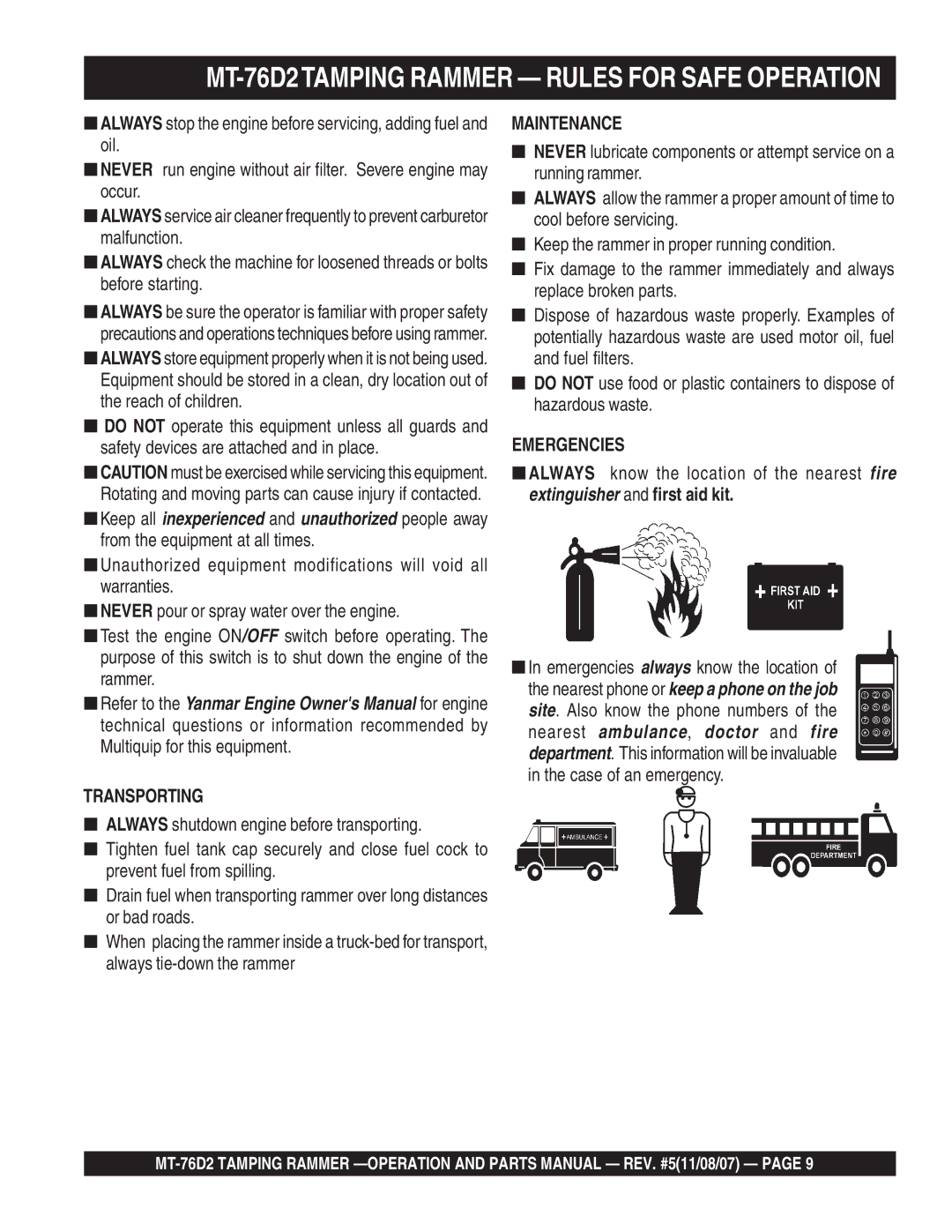
MT-76D2TAMPING RAMMER — RULES FOR SAFE OPERATION
■ALWAYS stop the engine before servicing, adding fuel and oil.
■NEVER run engine without air filter. Severe engine may occur.
■ALWAYS service air cleaner frequently to prevent carburetor malfunction.
■ALWAYS check the machine for loosened threads or bolts before starting.
■ALWAYS be sure the operator is familiar with proper safety precautions and operations techniques before using rammer.
■ALWAYS store equipment properly when it is not being used. Equipment should be stored in a clean, dry location out of the reach of children.
■DO NOT operate this equipment unless all guards and safety devices are attached and in place.
■CAUTION must be exercised while servicing this equipment. Rotating and moving parts can cause injury if contacted.
■Keep all inexperienced and unauthorized people away from the equipment at all times.
■Unauthorized equipment modifications will void all warranties.
■NEVER pour or spray water over the engine.
■Test the engine ON/OFF switch before operating. The purpose of this switch is to shut down the engine of the rammer.
■Refer to the Yanmar Engine Owner's Manual for engine technical questions or information recommended by Multiquip for this equipment.
TRANSPORTING
■ALWAYS shutdown engine before transporting.
■Tighten fuel tank cap securely and close fuel cock to prevent fuel from spilling.
■Drain fuel when transporting rammer over long distances or bad roads.
■When placing the rammer inside a
MAINTENANCE
■NEVER lubricate components or attempt service on a running rammer.
■ALWAYS allow the rammer a proper amount of time to cool before servicing.
■Keep the rammer in proper running condition.
■Fix damage to the rammer immediately and always replace broken parts.
■Dispose of hazardous waste properly. Examples of potentially hazardous waste are used motor oil, fuel and fuel filters.
■DO NOT use food or plastic containers to dispose of hazardous waste.
EMERGENCIES
■ALWAYS know the location of the nearest fire extinguisher and first aid kit.
■In emergencies always know the location of the nearest phone or keep a phone on the job site. Also know the phone numbers of the nearest ambulance, doctor and fire department. This information will be invaluable in the case of an emergency.
